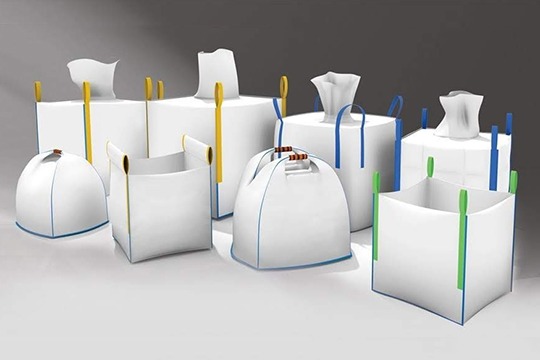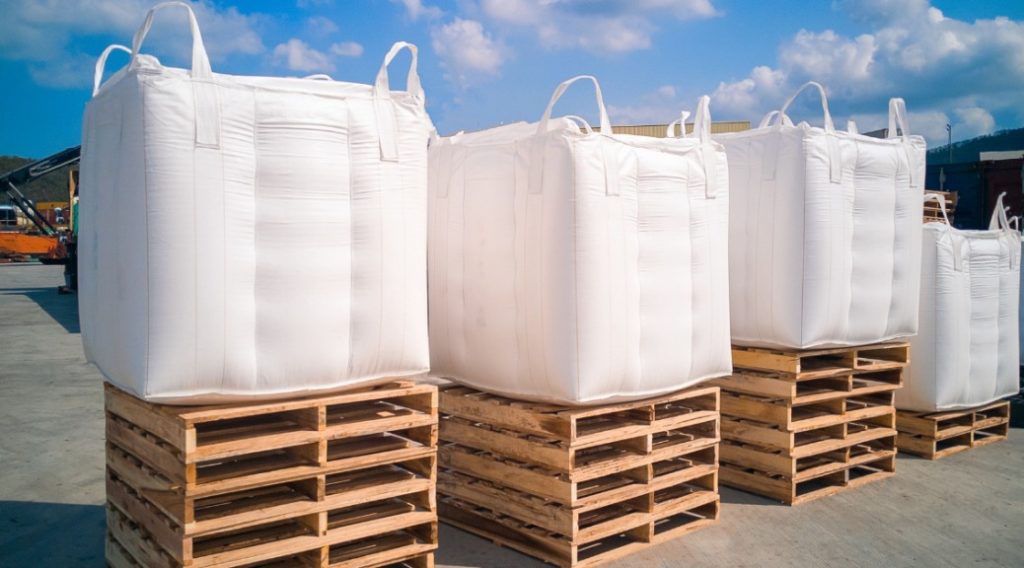Flexible Intermediate Bulk Containers (FIBC) bags, also known as bulk bags or big bags, are an essential part of industrial packaging, used for transporting and storing dry bulk goods like grains, chemicals, and minerals. Despite their widespread use and many benefits, there are still numerous misconceptions surrounding FIBC bags. These myths can lead to confusion, poor purchasing decisions, and the misuse of these packaging solutions. In this blog, we will debunk some of the most common myths about FIBC bags and shed light on their true capabilities.

Myth 1: FIBC Bags Are Only for Large Quantities
One of the most common myths about FIBC bags is that they are only suitable for transporting large quantities of goods. This misconception arises from the fact that FIBC bags are large and can carry a significant amount of material, often in the range of 500 kg to 2000 kg or more. However, FIBC bags are highly versatile and can be used for small, medium, and large-scale packaging needs.
The Truth
FIBC bags come in various sizes, ranging from small bags that hold only a few kilograms of material to large ones designed for bulk storage. The flexibility in size allows businesses of all sizes to use FIBC bags efficiently. Additionally, their lightweight construction makes them suitable for various storage needs, even when the load capacity is not at its maximum.
For instance, smaller FIBC bags are ideal for transporting products like chemicals, fertilizers, and pharmaceuticals in smaller quantities, making them an excellent choice for industries that do not require large-scale bulk packaging.
Myth 2: FIBC Bags Are Not Safe for Storing Hazardous Materials
Another prevalent myth is that FIBC bags are not safe for storing hazardous materials. Given that FIBC bags are often used for transporting bulk products, some assume they cannot provide the level of safety required for dangerous substances. This myth may stem from concerns over static electricity or the risk of leaks.
The Truth
FIBC bags are designed with safety in mind, especially when used for hazardous materials. Specialized FIBC bags, such as Type C and Type D bags, are equipped with anti-static properties to prevent the risk of sparks caused by static electricity. These types of bags are widely used in industries such as chemicals, pharmaceuticals, and even the food industry, where the safe handling of sensitive materials is paramount.
Type C FIBC bags are conductive and designed to prevent static charge buildup, making them suitable for transporting flammable or explosive materials. Type D bags are dissipative, allowing them to discharge static electricity safely. This ensures that FIBC bags are not only safe for hazardous materials but also compliant with international safety standards for handling dangerous goods.
Myth 3: FIBC Bags Are Not Durable Enough for Long-Term Use
FIBC bags are often seen as a disposable solution due to their relatively low cost compared to traditional packaging methods like drums or containers. This has led to the belief that FIBC bags lack durability and are not suitable for long-term use or for holding heavy or rough products.
The Truth
In reality, FIBC bags are incredibly durable and designed to withstand harsh conditions. Made from woven polypropylene (PP), FIBC bags are strong, tear-resistant, and capable of holding heavy loads without compromising their structural integrity. In addition, they can be reinforced with additional features such as baffles or coatings to improve their strength and durability.
These bags are designed for both single-use and multi-use purposes, with some bags being suitable for long-term storage of materials like grains, chemicals, or sand. Many businesses use FIBC bags repeatedly for transporting and storing goods, making them a highly durable and cost-effective option for various industries.
Myth 4: FIBC Bags Are Not Environmentally Friendly
There is a misconception that FIBC bags are harmful to the environment due to their plastic-based construction. Many believe that the bags are not recyclable or biodegradable, contributing to plastic waste. This myth is particularly concerning for companies looking to improve their sustainability practices.
The Truth
FIBC bags are actually an environmentally friendly packaging solution when used correctly. The main material used in their production is polypropylene, which is recyclable. Many FIBC bags are collected and reused, reducing waste and promoting a circular economy. Additionally, the long lifespan of FIBC bags means that fewer bags are required for the same quantity of goods compared to traditional packaging methods, which also reduces the overall environmental impact.
Companies can further reduce their environmental footprint by choosing suppliers who use recycled polypropylene or offer take-back programs for used bags. Furthermore, there are biodegradable alternatives to FIBC bags that are being developed for specific industries with strict sustainability goals.
Myth 5: FIBC Bags Are Only Suitable for Certain Industries
Another myth about FIBC bags is that they are suitable only for specific industries, such as agriculture or construction. While it’s true that FIBC bags are commonly used in these sectors, they are incredibly versatile and can be used in a wide range of industries, from pharmaceuticals to food production and even in the electronics sector.
The Truth
FIBC bags are highly customizable, which makes them suitable for a diverse array of industries. For example, in the food industry, FIBC bags are used to transport ingredients like sugar, flour, and salt, as well as to package bulk items such as rice and grains. In the pharmaceutical industry, FIBC bags are used to package materials that require high levels of hygiene and safety. Similarly, industries like chemicals, plastics, and metals all utilize FIBC bags for their robust and reliable packaging capabilities.
The adaptability of FIBC bags means that they can be used in any sector that requires bulk packaging, offering a reliable solution for various types of products.
Myth 6: FIBC Bags Are Expensive and Not Cost-Effective
Many businesses assume that FIBC bags are an expensive packaging option due to their large size and industrial application. This myth may deter companies from considering FIBC bags as a viable solution for their packaging needs.
The Truth
In truth, FIBC bags are incredibly cost-effective, especially when compared to other bulk packaging options. Their low material cost, combined with their durability and reusability, makes them an affordable solution for industries looking to reduce their packaging expenses. Additionally, the weight and size efficiency of FIBC bags often lead to savings in transportation and storage costs.
FIBC bags can also help companies save on labor costs, as they are easier to fill and empty compared to traditional packaging methods. This efficiency leads to faster turnaround times, further contributing to overall cost savings.
Myth 7: FIBC Bags Are Not Aesthetically Pleasing
A less common but still noteworthy myth is that FIBC bags are unattractive and unsuitable for businesses that want to maintain a high level of branding and presentation in their packaging.
The Truth
FIBC bags are available in a wide range of colors, designs, and customizable options, making them a great choice for businesses that require branded packaging. Companies can print logos, labels, and other marketing materials on FIBC bags, ensuring that their products are presented in a professional and visually appealing manner. The ability to customize the bags’ appearance while maintaining their functionality makes FIBC bags a practical and aesthetically flexible option.
Conclusion
FIBC bags are one of the most reliable, cost-effective, and sustainable packaging solutions available today. Unfortunately, many misconceptions about their size, safety, durability, and environmental impact have led to confusion and hesitation among businesses. By debunking these myths, it’s clear that FIBC bags are a versatile, safe, and environmentally friendly packaging option suitable for a wide variety of industries. With their durability, cost-effectiveness, and adaptability, FIBC bags continue to be an essential tool in modern industrial packaging.
